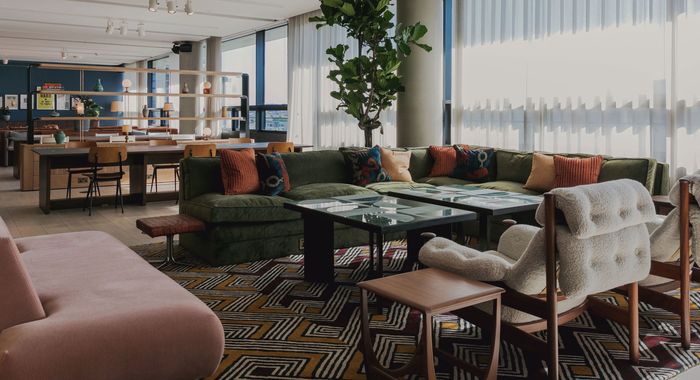Get To Know: Susanna Davies-Crook, founder of the Write Club series launching at Soho Works Shoreditch
We speak to the artist, writer, director and curator about balancing her creative outlets, how she got into writing, and what’s in store for members at Write Club. Have you ever wanted to hone your writing skills, but didn’t know where to start? Come along to Write Club, which is launching at Soho Works Shoreditch on 31 January 2022. The series is hosted by Susanna Davies-Crook, a professional writer and former arts editor at Dazed magazine, who is currently writing her first book. We catch up with Davies-Crook to hear how she balances the multiple facets of her creative career, how she first got into writing, and what her top tips are.
How did your career in writing begin?
‘I studied art and have always come to writing via art. I made site-specific theatre at university, and when I graduated into the post-crash recession, I had no idea where to start. I began working at the Hayward Gallery as an assistant to the curator and writer, Francesca Gavin; we became friends and she took me under her wing. I worked with her on the arts pages at Dazed and then moved to Berlin to get involved with the art scene there, where I started working as an editor.
‘I earned next to nothing from writing to begin with and had some really soul-destroying jobs to get by financially, while at the same time going on mad press trips to art fairs around the world. I’ve always been freelance, so I could travel – at times it’s been scrappy, but I’ve had a blast. I think it’s really important to be honest about how you survive as a creative if you’re from a working-class background. I would love to see more support for artists from varied backgrounds; otherwise, it’s not an ecosystem, it’s a monoculture.’
As a multi-faceted creative, how do you navigate your working life?
‘I’m really passionate about interdisciplinarity. Humans are multiple beings and I think the idea of having a singular approach to things is becoming pretty outdated now. When I’ve guest lectured at art schools, I’ve spoken to BA students panicking about whether to be a curator, artist or writer. I just think it all comes from the same essence: it’s creativity, thought, and making. At the moment, I’m finishing my first novel, running an Arts Council-funded research project, developing a film, teaching yoga, and training to be a hypnotherapist. I have a neurodivergent brain and the thing that works best for me is to be working on lots of projects simultaneously.’
What motivates you?
'Care. Social justice and responsibility are now a large part of my drive. Curating Transformer: A Rebirth of Wonder at 180 The Strand with Jefferson Hack was brilliant because we spoke a lot about care, interdependency and transformation, and worked with artists like Donna Huanca, Leah Clements and Sophie Hoyle who build care into their processes.'
You’re launching the Soho Works Write Club series on 31 January. What does this involve?
‘The most gorgeous thing about Write Club is how, without fail, it ends up being a space for intimate sharing and open-hearted feedback. It’s one of the most rewarding and life-affirming projects I’ve been a part of – especially the Zoom sessions that Matt Maude and I ran in the cold heart of lockdown – which is why we’re so pleased to be bringing the format to Soho Works.
‘We begin by opening the space and setting a prompt or restraint for the writers to respond to, and then we start writing – together but separately – for an hour. After some food and wine, plus a talk from an invited guest, we edit and share our words. I love to write in company and I’m more productive under pressure, so Write Club has often been the birthplace of short texts that go on to be really important for my work.’
Do you have any writing habits or tips for getting into a creative flow?
‘We talk about this in Write Club all the time, and for me it’s about leaning into the way you work and understanding your energy flow, rather than forcing yourself to be productive in ways that don’t serve you.
‘When I’ve taken other writing courses, everyone speaks about consistency – for example, sit in a chair at the same time each day. But that just doesn’t work for me at all; I just freeze. I like to move, get out, do yoga, write notes on my phone, wake in the night and write, join groups and classes, and most importantly, I love to be around people. I don’t need a desk on my own on a rocky outcrop; I need a bustling metropolis and an outside table.’

